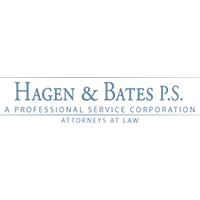 Moclips RICO Act Lawyers, Washington
Moclips RICO Act Lawyers, Washington
Sponsored Law Firm
-
 x
x

Click For More Info:
-
Soriano Law
104 W. Marcy Ave Montesano, WA 98563» view mapCriminal Law Where You Need to Be
An integral part of our legal services is to work closely with clients so that they can make the right decisions with respect to their legal needs.
800-337-9120
Not enough matches for Moclips RICO Act lawyer.
Below are all Moclips Criminal lawyers.
Sponsored Lawyers
1-2 of 2 matches
Criminal, Personal Injury, DUI-DWI, Business
Since the firm was established in 1993, the skilled attorneys at Hagen & Bates P.S. have provided versatile, professional and effective solutions to a variety of our clients’ legal challenges. With over 40 years of combined experience, we are always here to provide the support and assistance you require. For his professionalism and ethics, principal attorney Wayne D. Hagen, Jr. has earned a BV® Distinguished Peer Review Rating by Martindale-Hubbell®. The unique talents, backgrounds and skills our attorneys bring to our law firm apply well to various areas of the law. With our proven courtroom skills in state and federal jurisdictions, we are experienced litigators who are prepared to do the research and understand the nuances of your case. We also have the skill to handle complex transactions.
(more)


 Ronnie Soriano 104 W. Marcy Ave Montesano, WA
Ronnie Soriano 104 W. Marcy Ave Montesano, WA AboutSoriano Law
AboutSoriano Law Practice AreasExpertise
Practice AreasExpertise

